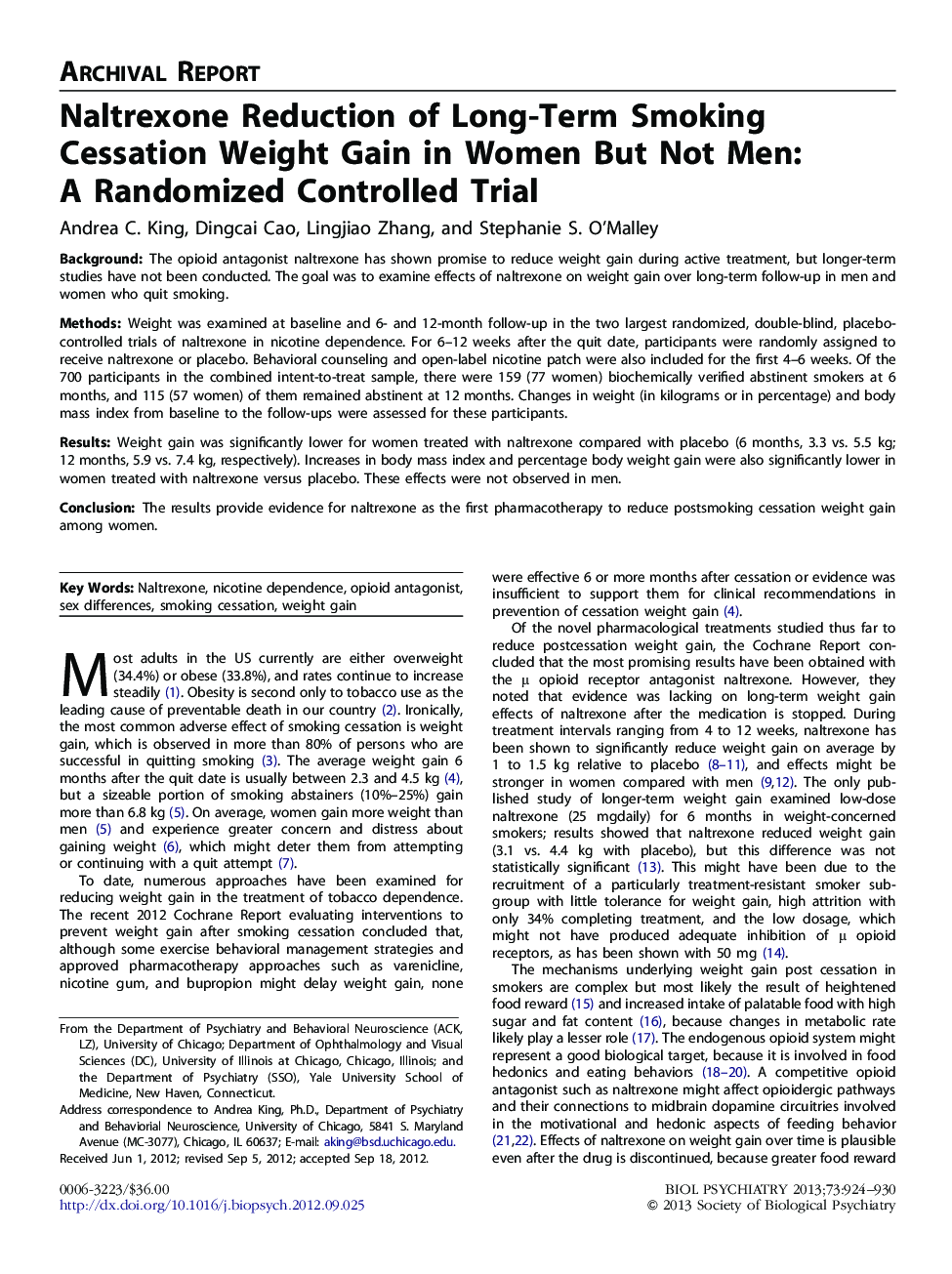| Article ID | Journal | Published Year | Pages | File Type |
|---|---|---|---|---|
| 6227614 | Biological Psychiatry | 2013 | 7 Pages |
BackgroundThe opioid antagonist naltrexone has shown promise to reduce weight gain during active treatment, but longer-term studies have not been conducted. The goal was to examine effects of naltrexone on weight gain over long-term follow-up in men and women who quit smoking.MethodsWeight was examined at baseline and 6- and 12-month follow-up in the two largest randomized, double-blind, placebo-controlled trials of naltrexone in nicotine dependence. For 6-12 weeks after the quit date, participants were randomly assigned to receive naltrexone or placebo. Behavioral counseling and open-label nicotine patch were also included for the first 4-6 weeks. Of the 700 participants in the combined intent-to-treat sample, there were 159 (77 women) biochemically verified abstinent smokers at 6 months, and 115 (57 women) of them remained abstinent at 12 months. Changes in weight (in kilograms or in percentage) and body mass index from baseline to the follow-ups were assessed for these participants.ResultsWeight gain was significantly lower for women treated with naltrexone compared with placebo (6 months, 3.3 vs. 5.5 kg; 12 months, 5.9 vs. 7.4 kg, respectively). Increases in body mass index and percentage body weight gain were also significantly lower in women treated with naltrexone versus placebo. These effects were not observed in men.ConclusionThe results provide evidence for naltrexone as the first pharmacotherapy to reduce postsmoking cessation weight gain among women.
